The Other Face of US in the 80s - Phil Collins: Another Day in Paradise REVIEW
Think About It
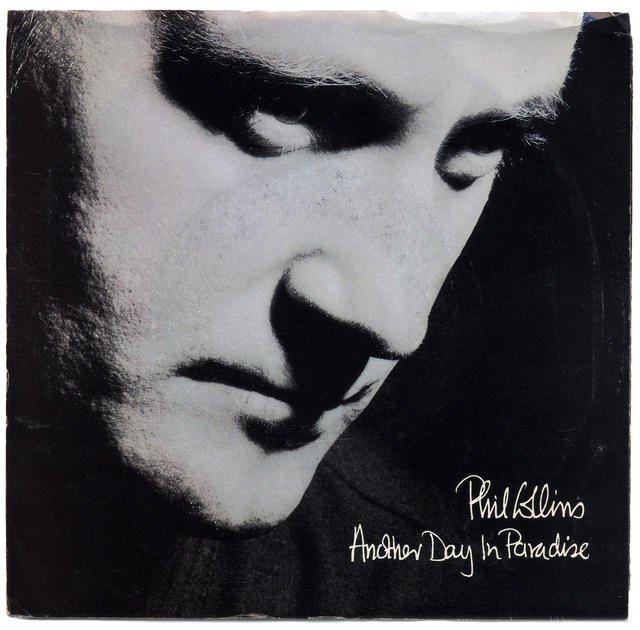
Shoutout to Rhino

In this article you'll find:
- Introduction
- Phil Collins, Another Day in Paradise: The Review
- The writing Process
- The Lyrics
- Legacy

While homelessness is a trouble that still haunts all nations, with the US having 582,462 dispossessed people as of 2023, It surely was a way more serious threat 34 years before.
According to a 1989 article by The Washington Post, the 246.8 million population of the US faced a homelessness crisis, with estimations of 350,000 to 3 million people forced to live in the streets of big states.
With this increase in the needy, popular claim soon made Itself known, wanting a solution for It. This could be seen in songs such as Jackie Brown by John Mellencamp, Man on the Corner by Genesis, and the Ultra-Hit by Its frontman Phil Collins: Another Day In Paradise.
That's why we'll go over the impact of a song that has kept being replayed for over 30 years, considered one of the peak achievements of Collins's repertoire, revealing how conscious songs can top the charts.
Let's dive into It

Phil Collins, Another Day in Paradise: The Review
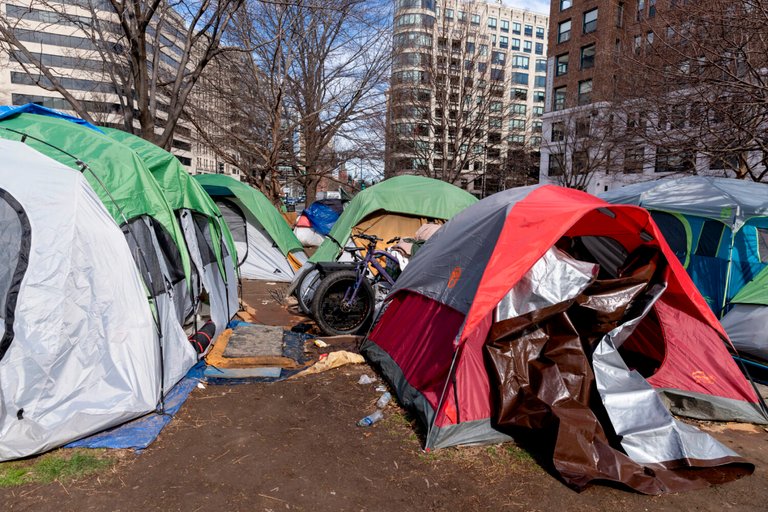
Shoutout to DCist
Increases in housing and rent prices, mental illness and substance abuse, all played a role in the increase of poverty in the late 80s, things that could be seen in the streets by medium and high-class individuals.
These living conditions were observed by the Drummer, Singer and Composer Phil Collins who was playing in Washington DC at the time. When he was driving in the city, he saw a great number of people living in boxes. According to Phil's words:
"I remember when we played Washington... Washington was almost at a standstill and these people were trying to sleep on the grills where all the hot air was coming up, and you could see that it was in the shadow of Capitol Hill. I thought it was an extraordinary contradiction."
But what impressed him the most was the public's reaction to It. A scene he recalls: When a homeless woman asked a man walking across the street for help, the latter kept walking as If he hadn't seen her. This did upset Collins, who set up to write a song for It.
As a single for his 1989's album "...But Seriously", the British artist released "Another Day in Paradise", a track talking directly to the working citizen, telling them that It's easy to dwell on their problems while having a roof over their heads.
This song reached #1 in America and #2 in the UK, keeping Janet Jackson's Rhythm Nation from the top spot, place this track kept for 4 weeks, being the final #1 hit of the 80s.
Despite initial backlash from critics, complaining about "Collins State being far from that of homelessness", this song would stand the test of time to become a classic, sentient tune.

The writing Process
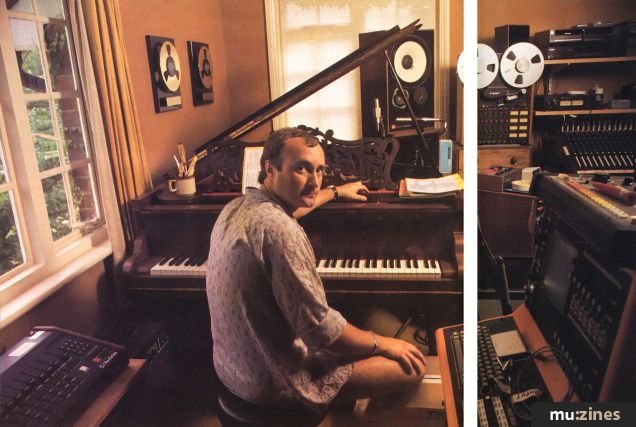
Shoutout to mu:zines
In an interview with The New York Times, Phil explained how the song was conceived:
"It was begun at the piano. I started playing and put it down on a tape so I wouldn't forget it. Then I decided to see what would happen when I started singing. When I began, the words just came out, 'She calls out to the man on the street.' I didn't set out to write a song about the homeless. Those were just the words I happened to sing. It was only then that I decided that was what the song would be about."
He also explained another one of his motivations for writing a track about a serious subject. His previous album "No Jacket Required" was full of Dance-Pop hits that made people forget what his initial songwriting capabilities were. Hence why Collins chose a protest song.
Written by Collins himself and produced by Hugh Padham, this song has a haunting quality to It, with melancholic synth keys playing on the forefront and a deep bass that makes It feel "intimate" in some sense.
Phill compliments this with a standard Verse-Chorus-Verse-Chorus-Bridge-Verse-Chorus structure, adding a couple of interludes after each chorus to send the message home, using the lines: "Think about it".

The Lyrics
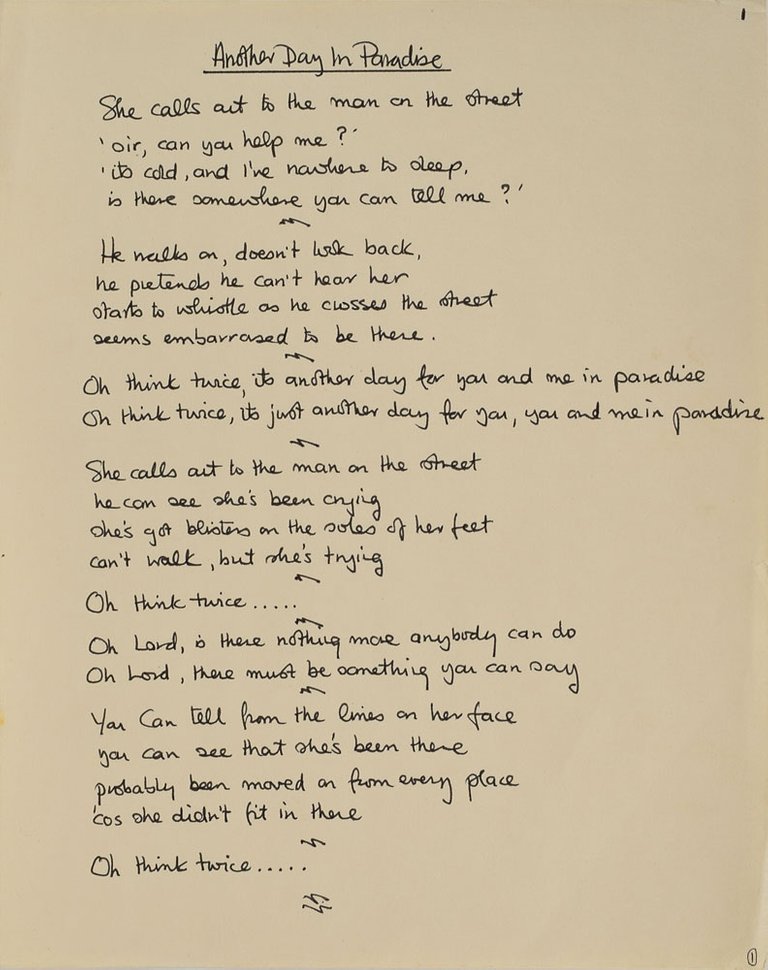
Shoutout to RR Auction
From the start of the song, after the Synth Keys fade, we hear a story unveiling:
She calls out to the man on the street
"Sir, can you help me?
It's cold and I've nowhere to sleep
Is there somewhere you can tell me?"
He walks on, doesn't look back
He pretends he can't hear her
Starts to whistle as he crosses the street
Seems embarrassed to be there
In self-explanatory fashion, the first verse depicts a woman in the streets, asking a man passing by If he knows the location of a shelter for the homeless, a petition he ignores as he whistles, feeling awkward just by being there.
She calls out to the man on the street
He can see she's been crying
She's got blisters on the soles of her feet
She can't walk, but she's trying
In the second verse, the man can see the state this woman is in, both mentally and physically. A sad face and worn-down feet prevent her from walking. This description alone can make anyone shed a tear or two.
You can tell from the lines on her face
You can see that she's been there
Probably been moved on from every place
'Cause she didn't fit in there
In the third verse, Phil gives us a last description of the lady in distress. A face with wrinkles, those caused by exposure to the harsh conditions of the streets. He also adds a call out the lack of empathy by assuming this person has been rejected from many places just for being homeless.
Even the singer feels worried, asking If there's some way to make the situation better on the bridge before the third verse:
Oh, Lord, is there nothing more anybody can do?
Oh, Lord, there must be something you can say
And all this is tied by a chorus that reflects on how we might think we don't have much, yet some people have much less:
Oh, think twice, 'cause it's another day for
You and me in paradise
Oh, think twice, it's just another day for you
You and me in paradise
Here, Phil asks us to think twice about those in need and open our hearts to seek ways in which we can help.

Legacy
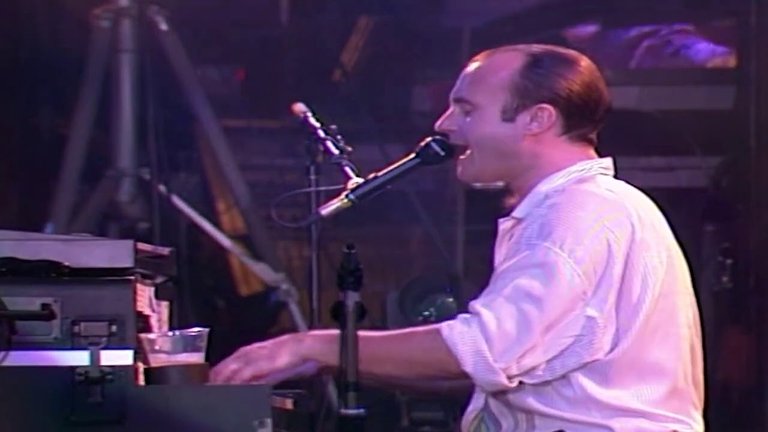
Shoutout to Youtube and Both Sides of Phil Collins
The last No.1 Hit of the 80s and the first one of the 90s, Another Day in Paradise is a song that's remembered for Its commentary on the state of things during that period.
This effort won Phil Collins and Padgham a Grammy for Record of the Year, ceremony at which he performed the song along with David Crosby from The Byrds, who provided backing vocals for the track.
Despite all this, Another Day in Paradise experienced backlash from many outlets in the media industry, with commentaries like:
Collins might write a song about the homeless, but if he doesn't have the action to go with it he's just exploiting that for a subject.
-- Billy Bragg
The main claim from these was Phil's fortune impeding him from talking about the homeless. To this, he responded:
"When I drive down the street, I see the same things everyone else sees. It's a misconception that if you have a lot of money you're somehow out of touch with reality."
The truth is, Phil thought about the dispossessed and did something about It. He collected money from fans who attended his concerts and also donated to these organizations with his own money, being a supporter of St. Francis Food Pantries and Shelters, which provide Shelter support for over 9000+ needy families each week.

At the end of the day, those voices who criticized Collins were left in the past, while this track grew to become an anthem for the homeless, evoking the same feelings as It did the first day of Its release.

I hope this article could have provided you with enough entertainment, bringing you the perspective of artists toward social issues and how this can fire back sometimes, but at the end of the day, the truth will prevail.
Thank you for your support and good luck!



Source:
https://genius.com/Phil-collins-another-day-in-paradise-lyrics
https://www.rhino.com/article/once-upon-a-time-in-the-top-spot-phil-collins-another-day-in-paradise
https://www.songfacts.com/facts/phil-collins/another-day-in-paradise
https://en.wikipedia.org/wiki/Another_Day_in_Paradise